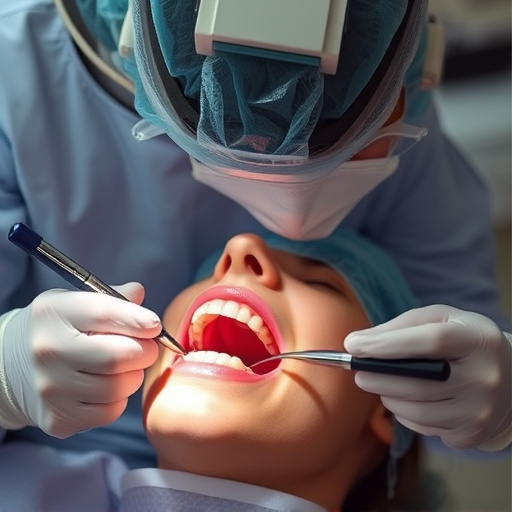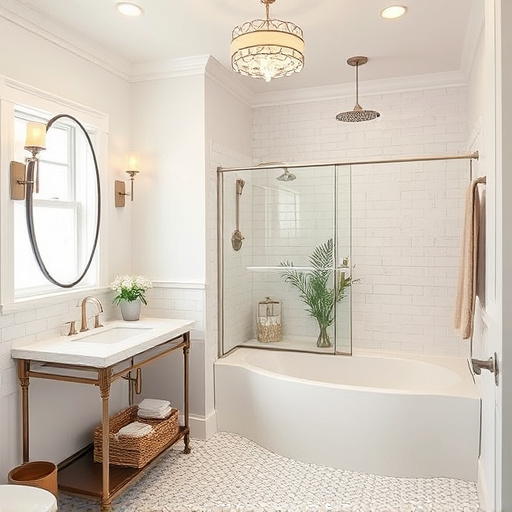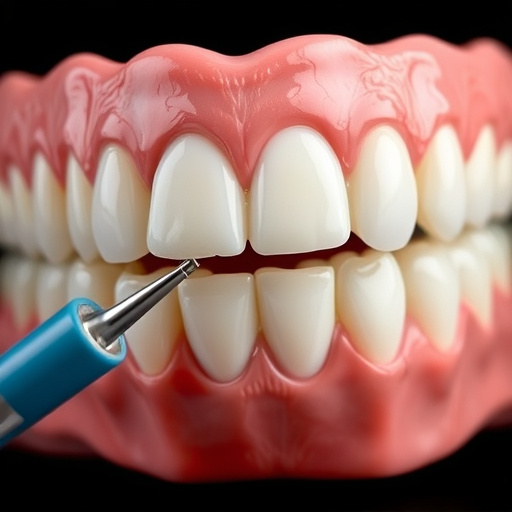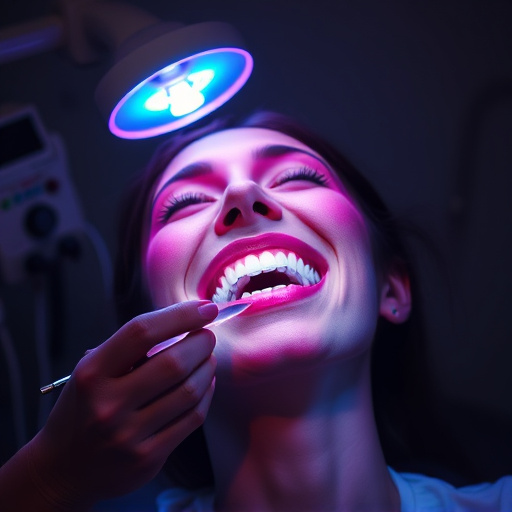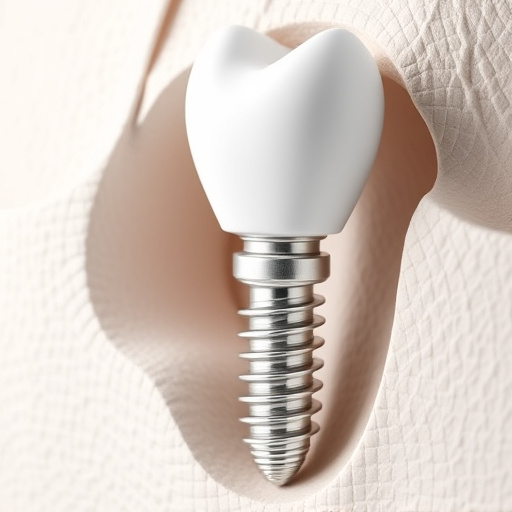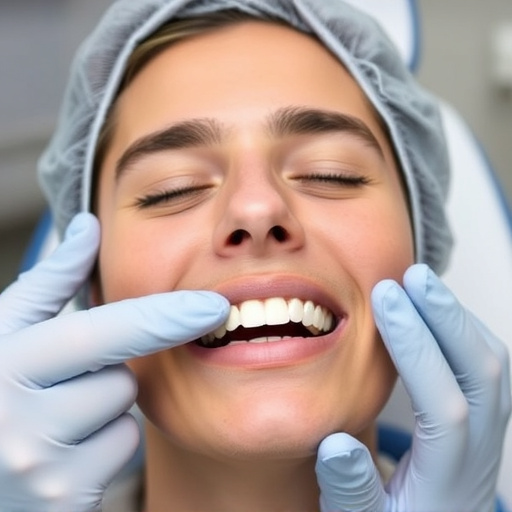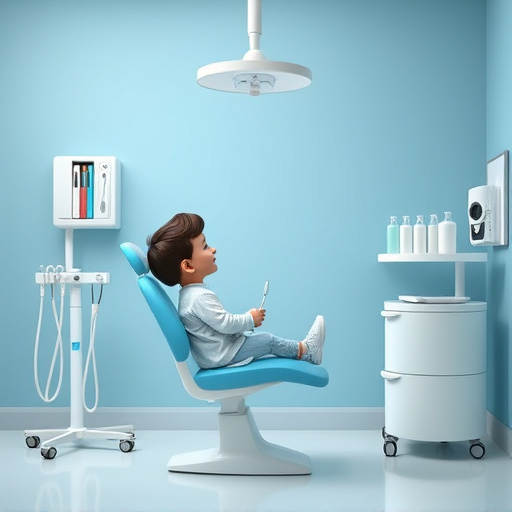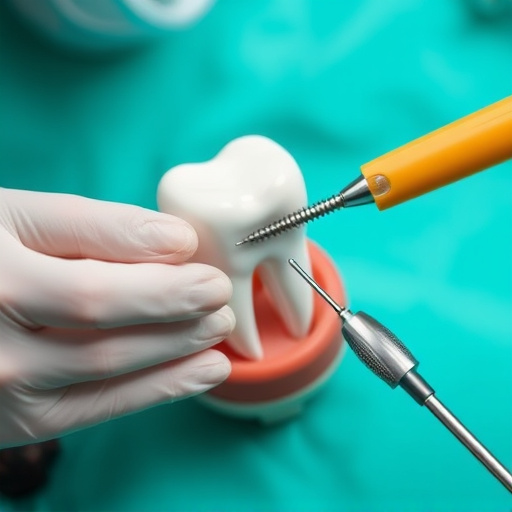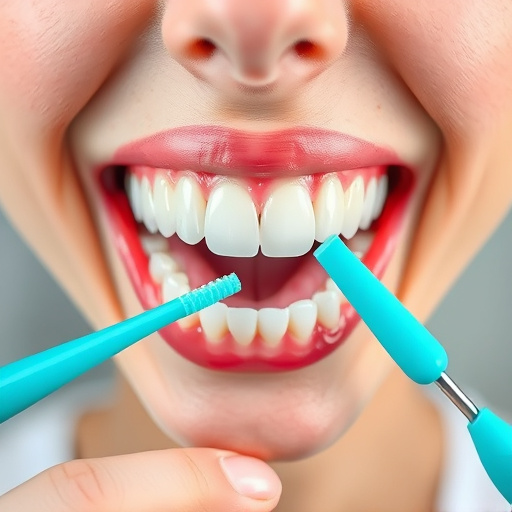Dental anxiety manifests differently across age groups, from children's crying/avoidance to adults' procrastination/physical symptoms and older adults' concerns about tooth loss or complex procedures. Effective dental anxiety treatment involves tailoring strategies based on unique fears and beliefs at each stage of life. For younger patients, building trust through play, storytelling, and virtual reality, combined with education and parental involvement, promotes good oral hygiene habits. Teens benefit from open communication, decision-making involvement, pain management options, and relaxation techniques. Adults and seniors can use cognitive-behavioral therapy (CBT), clear aligners, and tailored teeth cleaning techniques for effective dental anxiety treatment.
Dental anxiety is a common issue across all age groups, with unique manifestations in children, teens, adults, and seniors. Understanding these variations is key to effective personalized dental anxiety treatment. This article explores tailored strategies for each demographic, from calming techniques for younger patients to advanced relaxation methods for older adults. By addressing dental anxiety specifically, we can enhance overall oral health and well-being at every stage of life.
- Understanding Dental Anxiety Across Age Groups
- Tailoring Treatment for Children and Teens
- Advanced Techniques for Adults and Seniors
Understanding Dental Anxiety Across Age Groups
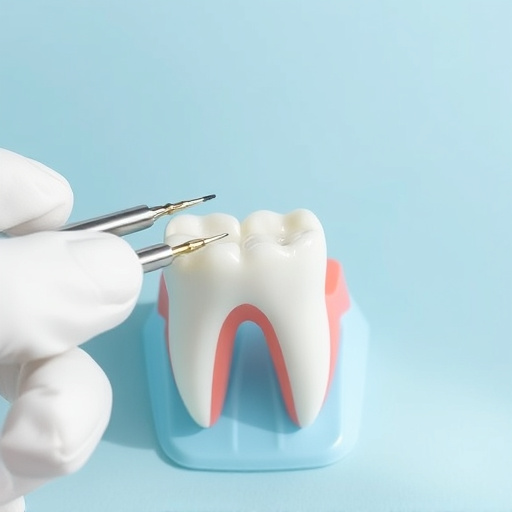
Dental anxiety is a common experience that can vary significantly across different age groups. Understanding these differences is crucial for developing effective personalized dental anxiety treatment plans. Young children, for instance, often express dental fear through crying or avoidance, while teenagers might manifest anxiety as irritability or even defiance towards dental procedures. Adults may cope by procrastinating dental visits or experiencing physical symptoms like heart palpitations and dizziness.
As individuals age, their concerns shift; older adults might be more anxious about the loss of teeth or the need for complex procedures such as dental fillings, teeth cleaning, or dental bonding. Each stage presents unique challenges, requiring tailored approaches to address specific fears and beliefs surrounding oral health care. By recognizing these variations, dental professionals can offer sensitive and effective dental anxiety treatment suitable for every age group.
Tailoring Treatment for Children and Teens
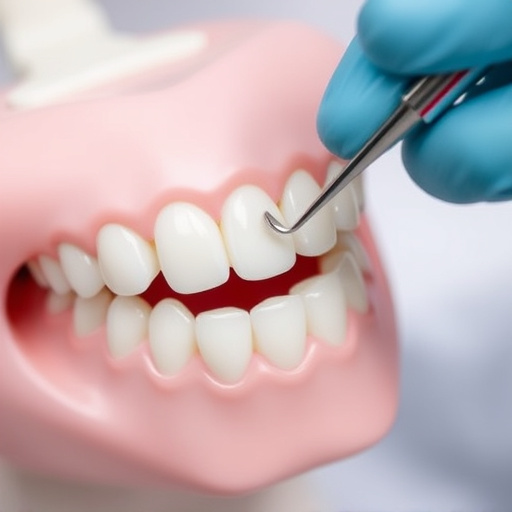
Addressing dental anxiety in children and teens requires a thoughtful, age-appropriate approach. For younger kids, treatment should focus on building trust and positive associations with dental visits. This can involve incorporating play, storytelling, or even virtual reality to make the experience less intimidating. Education tailored to their level of understanding, along with parental involvement, can help them develop good oral hygiene habits from an early age, reducing future anxiety around dental procedures.
As children grow into teens, treatment plans can become more complex, addressing specific concerns like tooth extractions or tooth repair. It’s crucial to continue fostering open communication and to involve teens in decision-making processes regarding their dental health. Providing them with information about different options available for managing pain during procedures, such as anesthesia or relaxation techniques, empowers them to participate actively in their care, reducing anxiety and promoting a positive relationship with dental care throughout adolescence.
Advanced Techniques for Adults and Seniors
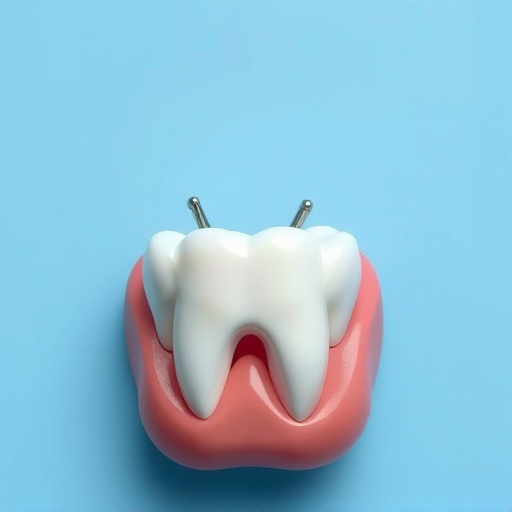
For adults and seniors experiencing dental anxiety, modern treatment options offer a comforting approach to overcoming this fear. Advanced techniques such as cognitive-behavioral therapy (CBT) have proven effective in helping individuals manage their anxiety through relaxation strategies and gradual exposure to dental procedures. This personalized method allows patients to confront their fears in a controlled environment, making even the most daunting dental tasks more manageable.
Additionally, innovative treatments like clear aligners and specialized teeth cleaning techniques cater specifically to this age group’s needs. Clear aligners, for instance, offer a discreet alternative to traditional braces, eliminating the aesthetic concerns often associated with orthodontic treatment. Meanwhile, tailored teeth cleaning approaches consider the unique oral health requirements of seniors, ensuring their comfort and addressing any specific issues that may arise due to age-related changes in the mouth.
Dental anxiety can affect individuals across all age groups, but personalized treatment plans offer hope and relief. By understanding the unique needs of children, teens, adults, and seniors, we can provide tailored strategies to manage and overcome this common issue. From child-friendly environments and play-based techniques to advanced relaxation methods for adults and seniors, there’s a customized approach for everyone. Embracing these treatments can transform dental visits from stressful events into positive experiences, ensuring better oral health for all ages.

